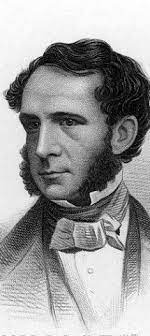The prophet Elisha was a traveling evangelist who taught at a “school of the prophets” or what we’d today call a Bible college or seminary. Such schools existed across Israel (1 Sam 19:22-24; 2 Kings 2:1-5; 4:1-7, 38-44).
When a larger classroom was needed, the students and their teacher expanded the building. As the men cut trees along the riverbank, one man’s ax broke. He’d borrowed the ax from a neighbor and under Jewish law, damaging a tool meant buying a new one (Exodus 22:14-15; Deuteronomy 19:4-5). The Hebrew word translated “borrowed” is actually much stronger, meaning he “begged” to use his neighbor’s ax. Begging suggests he lacked the money to own one himself, and buying a replacement was an excessive burden.
The student pointed to the area in the river he saw the ax head splash. Rather than chastising him as careless, Elisha cut a stick from a tree, tossed it into the river where the ax head was last seen, and the ax head floated to the surface. There was no magic in the cut stick. God performed a miracle and the stick symbolized what Elisha wanted the ax head to do.
Interpretation answers the question, “What does the text say? What did the author intend us to understand?” Application addresses the question, “What does the text mean for me? What am I to do?” Before applying Scripture to your life, you must know what Scripture means in its original context and intent.
Second Kings 6 doesn’t suggest this kind of miracle is normative.
I received a video of a modern Kenyan apostle who claimed to be a regular miracle worker. The video showed him commanding a van engulfed in a raging river back to dry ground. Careful watching revealed he simply played the video in reverse when the van was swept into the flood.
Miracles are very rare in Scripture, occurring during only 3 historical periods: Moses and Aaron, as they established Israel as a nation; Elijah and Elisha when Israel was under attack by paganism; and Jesus and the apostles at the establishment of the church.
Miracles demonstrated more than God’s might. Creation is sufficient for that! Miracles were signs pointing to a greater truth beyond themselves, saying something about the character, nature, and works of God.
Part 3 of 4 tomorrow.






You must be logged in to post a comment.